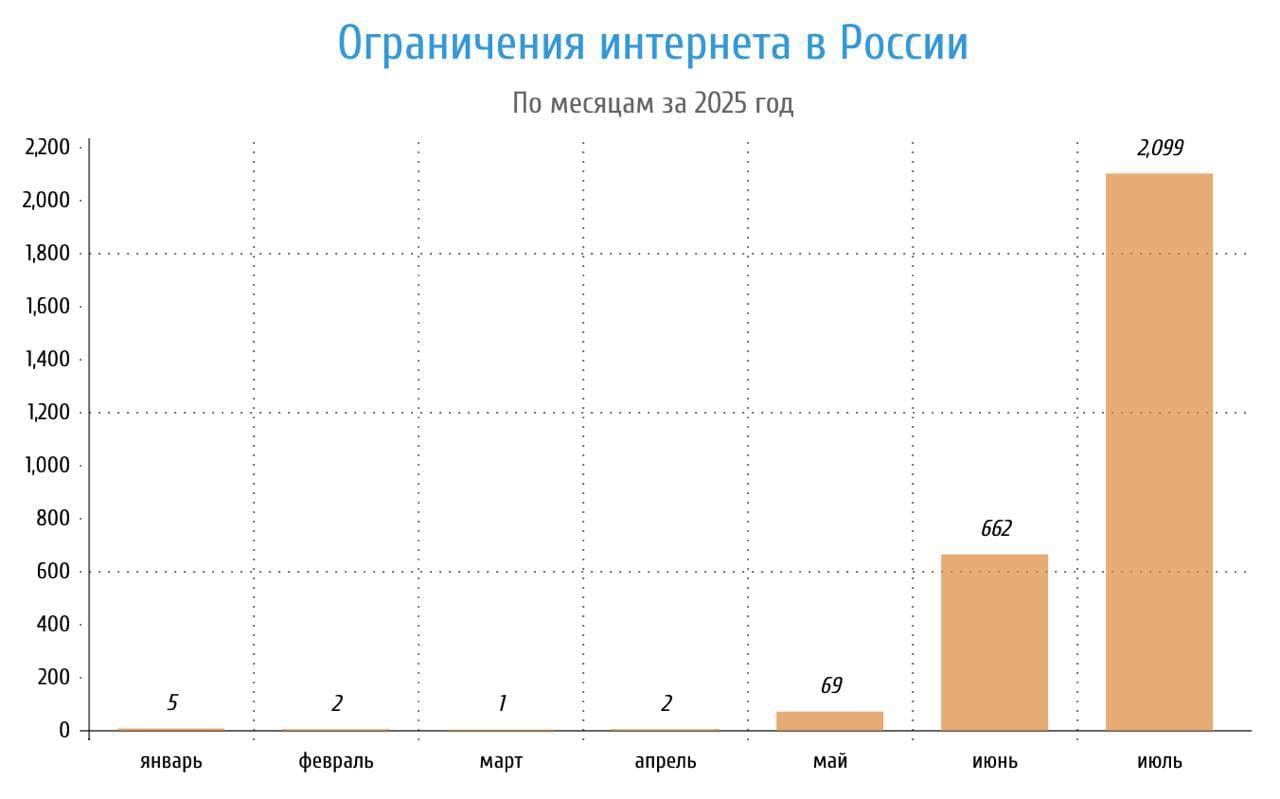Record 2,099 Internet Shutdowns in July Spark Outrage Across Russia
In a shocking escalation of state control, Russian authorities recorded an unprecedented 2,099 instances of internet shutdowns in July 2025, impacting both mobile and wired internet access across the nation. This alarming trend highlights the increasing restrictions on digital communications within the Russian Federation, where citizens are facing unprecedented levels of connectivity disruption.
Background & Context
The recent surge in internet shutdowns is part of a broader pattern of state censorship in Russia. According to a study conducted by the independent project "On the Line," the number of disconnections has increased dramatically over the past few months, with only 69 recorded in May and 662 in June. The shutdowns on July 30 and 31 affected 62 and 57 regions, respectively, illustrating the extensive reach of this governmental control.
Internet access has become a critical tool for communication, information dissemination, and activism, particularly in a political landscape characterized by increasing repression. The Russian government"s strategy appears to be aimed at stifling dissent and curbing the spread of information that contradicts official narratives. This has led to widespread concern among civil rights advocates and ordinary citizens alike about the implications for free speech and democracy.
Key Developments
The record-breaking number of internet shutdowns in July follows a worrying trend that began earlier in the month, with mobile internet service disrupted in 77 regions on July 8 and 79 regions on July 18. The government has justified these actions as necessary for maintaining public order, but critics argue that these measures are a blatant attempt to silence opposition and control the flow of information.
As previously reported, the independent project "On the Line" has been tracking these disconnections, revealing that the frequency and scale of shutdowns have reached alarming levels. The organization noted that the 2,099 incidents in July represent a significant increase in state-imposed restrictions compared to previous months, raising concerns about the future of digital rights in Russia.
Broader Impact
The implications of these internet shutdowns extend beyond mere inconvenience for users; they pose serious threats to civil liberties and the ability of citizens to engage in political discourse. Experts warn that the systematic disruption of internet services could lead to a more controlled populace, where dissenting voices are silenced and public opinion is shaped solely by state-sponsored narratives.
International observers have drawn parallels between Russia"s approach to internet governance and similar situations in other authoritarian regimes. For instance, the recent developments in Bosnia and Herzegovina, where political leaders face legal consequences amid a national crisis, highlight how governments may resort to censorship and repression to maintain power. Such comparisons underscore the global struggle for digital rights and the importance of safeguarding free expression in the face of state control.
What"s Next
Looking ahead, the continuation of internet shutdowns in Russia raises critical questions about the future of digital communication and civil liberties. Activists and human rights organizations are calling for greater international attention to Russia"s actions, urging global leaders to hold the government accountable for its repressive policies. As the situation evolves, it remains to be seen how the Russian populace will respond to these increasing restrictions and whether any significant pushback will emerge.
As the world watches, the implications of these shutdowns could reverberate beyond Russia"s borders, influencing how governments worldwide approach internet governance and civil rights. The situation remains fluid, and ongoing monitoring will be essential to understanding the full impact of these developments on Russian society and beyond.



![[Video] Gunfire between Iraqi security forces and Sadr militias in Baghdad](/_next/image?url=%2Fapi%2Fimage%2Fthumbnails%2Fthumbnail-1768343508874-4redb-thumbnail.jpg&w=3840&q=75)
